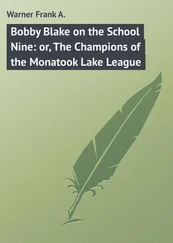Where did Zameer go?
Damn.
Zameer had vanished, probably off somewhere with his contact.
Salim thought about walking down to the other end and looking around. That was a gamble. He didn’t know if Zameer was meeting anyone of consequence. He did know that to walk away from where they’d been told to wait was a punishable offense. He shuddered to think what that punishment might be.
So he sat down and peered through the sparse crowd, searching the faces he could see.
A man walked up—young, like both of them. “Salim? Jalal?” he asked.
Jalal looked at Salim with the same question that was on Salim’s mind. Yes or no?
Before Salim had chosen how to answer the question, Jalal looked back at the standing man and said, “Yes.”
The man extended an envelope to Jalal, turned, and walked off.
“Instructions?” Jalal asked, looking at Salim.
Salim shrugged.
Jalal opened the envelope, reached in and pulled out two tickets. After taking a moment to look at them, he announced, “We’re going to Nairobi.”
“Nairobi?”
“Our flight leaves in fifty minutes.”
The layover in Dubai was long enough to distract Salim from staring at the back of the seat in front of him, but barely long enough for anyone to get off the plane, except for a few women in black burqas and their chaperones.
Before long, the big jet was back in the air, carrying Salim, Jalal, and possibly others like them, southwest toward Nairobi. Where they were going after Nairobi was a mystery. They had cryptic instructions about taking a cab to some address and waiting on a street corner until they received further instructions.
Salim didn’t think they would arrive at the street corner until two or three a.m. And there they’d be, foreigners standing on a corner, in a country neither of them had ever been to, in the middle of the night. If the local police took an interest, how would they explain their presence? They couldn’t. Lying would be their only option and lying was pointless. They didn’t know enough about anything in Nairobi to construct any kind of plausible lie. They might as well say they’d been abducted by aliens.
Salim was depressed.
He knew it was a matter of faith and discipline—getting on the plane, not knowing where he’d end up, let alone what he’d be doing. Of course, he assumed some jihadist activity awaited him, although at the same time, he felt just as powerless as he always had in America. An outsider. Untrusted. A grunt.
And he started to think that everything had been a mistake. He had the heretical thought that he might not be fighting America to change the world, but fighting simply to put a new repressive authority in power, just one with a different name and different set of corrupt values.
Salim asked Jalal, “Did you like living in London? I mean, besides the fog.”
Jalal gave the question some real thought before answering. “Mostly. Did you like Denver?”
Salim nodded. “I think when you can see past the lie that everyone is equal, then yeah, it wasn’t so bad. Better than living in the mountains and sleeping in a tick farm.”
Jalal had run out of energy, while walking what seemed like miles across the airport in Nairobi, and he had all but stopped talking. Salim found a cab driver that spoke English. But finding one that spoke English and would take them to the street corner where they needed to go—apparently in a less-than-desirable part of town—was another trick.
Nevertheless, by four a.m. they’d been standing on the corner for nearly an hour. Well… Salim stood. After fifteen minutes of waiting, Jalal sat down, leaned against a wall, and dozed off.
Salim wondered if Jalal had doubts about his choice to go to Pakistan and become a jihadist. He realized that the closer they got to wherever they were going, the less certain he was of his course. But here he was in Bumfuck, Africa, with a passport, a backpack, some clothes, toiletries, and enough traveling money to maybe get a meal and a cab back to the airport.
What then? A call to his dad, who suspected—but didn’t know—his intentions when he’d disappeared to go to Pakistan? The old man had been furious and broken-hearted. His mother cried. And what was he going to do, get a ride back to the airport? Beg his dad to fly him home? With what? His parents lived paycheck to paycheck to support an outwardly upper-middle class life. They had no savings and a ton of credit card debt. They bought wholeheartedly into the new and improved American Dream—permanent debt that ended in a reverse mortgage, so you couldn’t even leave your children the one asset you thought you owned.
Even if Salim could somehow find a way to talk himself into calling his dad— if he could convince his dad to forgive him for his disobedience—there was no way his father could come up with the thousands of dollars on short notice to pay for an expensive last-minute flight back to the US.
Could he find a way? Sure. If he had enough time while waiting around the Nairobi airport. Then again, Salim had seen too many videos of beheadings to think that he would live that long, once it had been found out that he turned against his new brothers.
They would think the only logical things. He was a coward, so he deserved death. He was a traitor, so he deserved death. He was a spy, so he deserved death. He was an apostate, so he deserved death. He was just like every other American, so he deserved death.
He’d never be able to talk his way out of those.
What about the American embassy?
What would he tell them? The truth? He’d gone to fight the Great Satan with his Arab brothers, but had changed his mind. Sure, they’d take him in, listen to all he had to say, probably catch Jalal as a result, and maybe even waterboard them both for a few months before dropping them in Guantanamo to be forgotten forever. Then, when budget and PR burdens became too heavy, some future administration would free him to Yemen or some such place, where he’d promptly lose his head in a desert, all recorded for distribution on YouTube, so that his parents could see their misguided traitor son be murdered by people he was stupid enough to trust.
But he had his passport. There had to be a reason for that.
They’d flown him to Nairobi. There had to be a reason for that.
Perhaps it was the beginning of a plan to ship him back to the US to do his jihad business there. If he was patient, in a few days or maybe even weeks, he’d be touching down in an American city with a network contact, maybe not unlike the one he was waiting on in the middle of the night in Nairobi— where the hell is Nairobi? Salim chastised himself for not being a better student in school. He’d be picked up on some anonymous street corner, taken to a safe house. Maybe even told to go out among the Americans and fit in. That would be his chance. He’d find himself a high-priced American attorney to protect his rights, his freedom, and his neck, and he’d trade his information to the FBI or CIA, whichever was in charge of buying it. In return, he’d get immunity and a new identity.
Heck, if he played his cards right, he might even be able to sell the movie rights to his story for a nice bundle of money. Maybe an alternative to the two million dollars he missed out on earlier.
Salim looked up and down the deserted street and didn’t care if he got the money. He just wanted to live through the ordeal, as hopes that he’d live to see his next birthday seeped into the darkness around him.
When a van painted in gaudy colors pulled up next to the curb, with friendly lions, zebras, and elephants surrounding the words “Big Country Safari Photo Tours,” Salim’s hope rekindled. A safari in Nairobi would be a good first step in building a tourism backstory prior to returning to America.
Читать дальше












